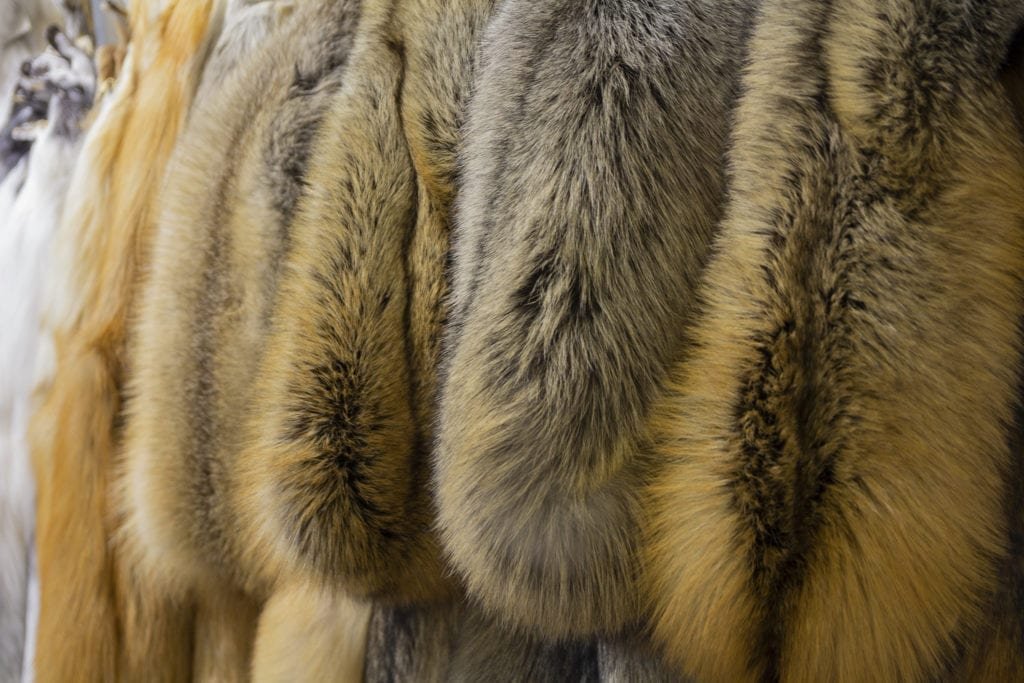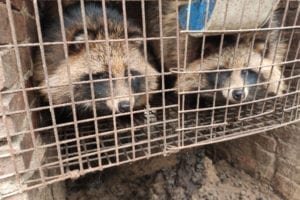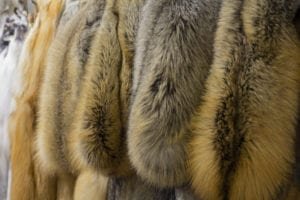‘The announcement by Kopenhagen Fur that it will cease trading shows that fur production has now passed a tipping point and it could very well signal the beginning of the end of the fur trade.
‘Fur farms are not only the cause of immense and unnecessary animal suffering, but they are also ticking time bombs for deadly diseases. We cannot simply sit back and wait for the next pandemic to emerge from them.
‘Set against a backdrop of public rejection of fur as unethical and outdated, governments must acknowledge that they can no longer justify allowing an industry that both threatens human health and costs tax-payers billions to manage biosecurity risks and provide farmers compensation following culls.
‘It’s time to turn off the life-support machine for this archaic trade, and focus instead on supporting farmers to move to humane, safe and economically viable livelihoods.’
DR JOANNA SWABE
Senior director of public affairs for Humane Society International, Europe
24.8 million mink skins were sold through Kopenhagen Fur between 2018 and 2019. During this time, the UK imported around £131,523 and £181,765 worth of fur from Denmark respectively –compared with over £200,000 worth of fur imported from Denmark in previous years.
‘We have witnessed a significant drop in pelt prices and have seen stockpiles of fur skins going unsold at auctions, sending the fur industry into a global downward spiral’, said Dr Swabe.
‘We expect an even further decrease in the demand for frivolous fur as Covid-19 affects factory fur farms around the world, forcing governments to shut down operations and farmers to find new avenues of income, Dr Swabe continues.
ECDC report findings
The ECDC report concludes that the overall level of risk to human health posed by SARS-CoV-2 mink-related variants is low for the general population, but moderate-to-high for medically vulnerable individuals who are living in areas with a high concentration of fur farms.
The risk is moderate for those working with mink and very high for individuals with occupational exposure, such as fur farmers.
A Dutch study using whole genome sequencing, which investigated outbreaks on 16 Dutch mink farms (with over 720,000 animals) and tested humans living or working on these farms, found that after the detection of SARS-CoV-2 on mink farms, 66 of 97 (67%) persons tested were infected with SARS-CoV-2.
Crucially, genetic analysis showed that the variant of SARS-CoV-2 virus was the same as those found in mink, and not identical to those found in unrelated Covid-19 patients living in the vicinity of farms.
 Play Video about This Rock Might Just Save The World
Play Video about This Rock Might Just Save The World Play Video about Play 2 hours of rock
Play Video about Play 2 hours of rock Play Video about Play 2 hours of brook
Play Video about Play 2 hours of brook Play Video about Play 2 hours of sheep
Play Video about Play 2 hours of sheep















































